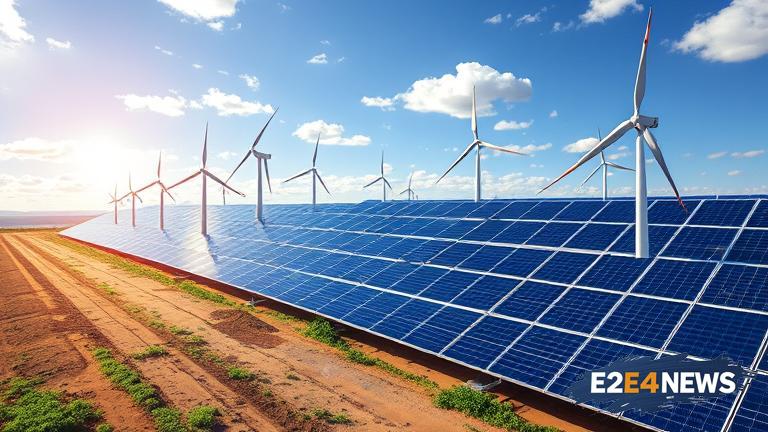The world has reached a critical juncture in the transition to renewable energy, with the United Nations announcing that solar, wind, and other green energy sources have achieved a global tipping point. This milestone marks a significant shift in the energy landscape, as the cost of renewable energy continues to decline, making it more competitive with fossil fuels. According to the UN, the rapid growth of solar and wind power has led to a substantial decrease in costs, with the average cost of solar energy dropping by over 70% in the last decade. This reduction in costs has made renewable energy more accessible to countries and companies around the world, driving increased adoption and investment. The UN report highlights the impressive growth of the renewable energy sector, with solar and wind power accounting for over 30% of global power generation capacity additions in 2020. This growth is expected to continue, with the International Energy Agency (IEA) predicting that renewable energy will account for over 60% of global power generation capacity additions by 2025. The benefits of renewable energy are numerous, including reduced greenhouse gas emissions, improved air quality, and enhanced energy security. As the world continues to transition to a low-carbon economy, the importance of renewable energy will only continue to grow. The UN report emphasizes the need for continued investment and innovation in the renewable energy sector, particularly in emerging markets and developing countries. Governments, companies, and individuals must work together to support the growth of renewable energy and ensure a sustainable future for all. The cost savings associated with renewable energy are significant, with the UN reporting that every dollar invested in renewable energy generates up to three times as much economic growth as the same dollar invested in fossil fuels. Furthermore, the renewable energy sector is creating new job opportunities and driving economic growth in communities around the world. The growth of renewable energy is also having a positive impact on the environment, with reduced greenhouse gas emissions and improved air quality. As the world continues to urbanize and industrialize, the demand for energy will only continue to grow, making the transition to renewable energy all the more critical. The UN report highlights the importance of international cooperation and knowledge sharing in supporting the growth of renewable energy. By working together, countries can share best practices, reduce costs, and accelerate the transition to a low-carbon economy. The private sector is also playing a critical role in the growth of renewable energy, with companies investing heavily in solar and wind power. The cost of renewable energy is expected to continue to decline, making it an increasingly attractive option for companies and countries around the world. In conclusion, the achievement of a global tipping point for renewable energy marks a significant milestone in the transition to a low-carbon economy. As the world continues to grow and develop, the importance of renewable energy will only continue to grow, driving a more sustainable and equitable future for all. The UN report emphasizes the need for continued investment, innovation, and international cooperation to support the growth of renewable energy and ensure a sustainable future. With the cost of renewable energy continuing to decline, the future of energy is looking increasingly green. The growth of renewable energy is a testament to the power of human innovation and the importance of working together to address the world’s most pressing challenges. As the world looks to the future, one thing is clear: renewable energy will play a critical role in shaping the course of human history.
